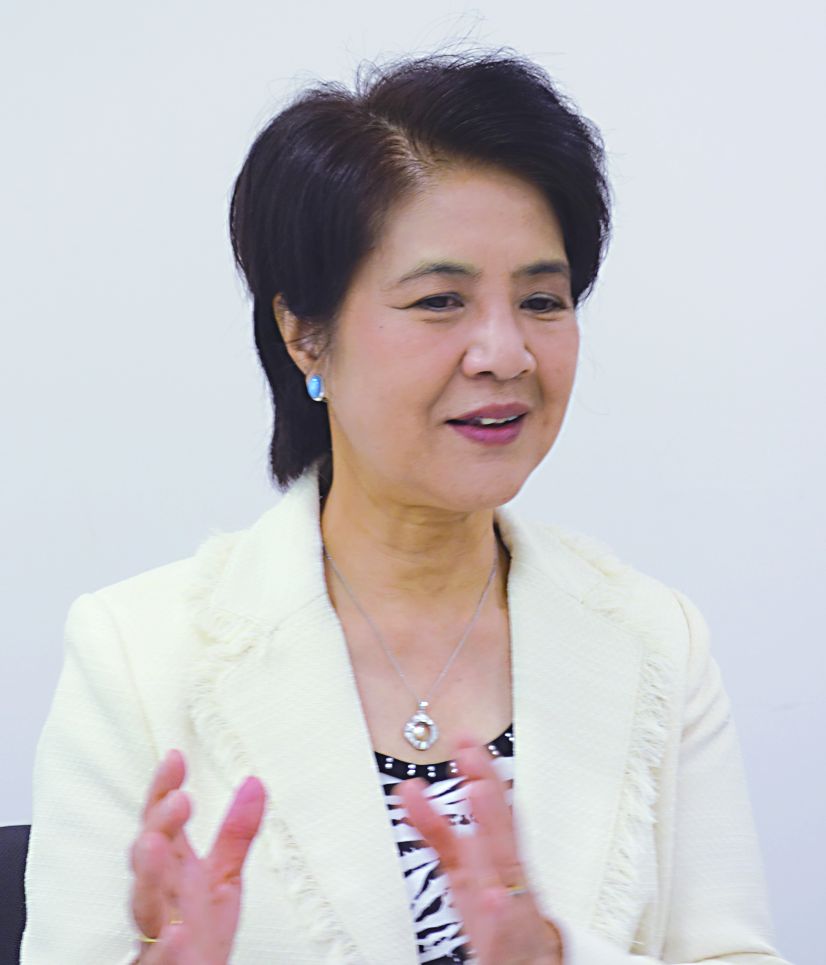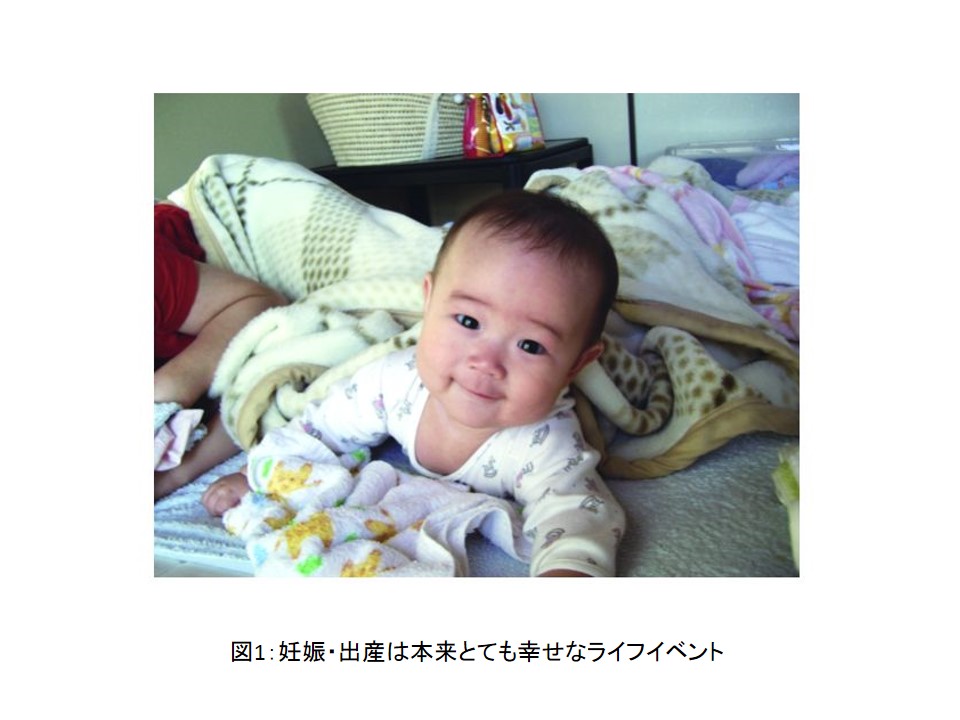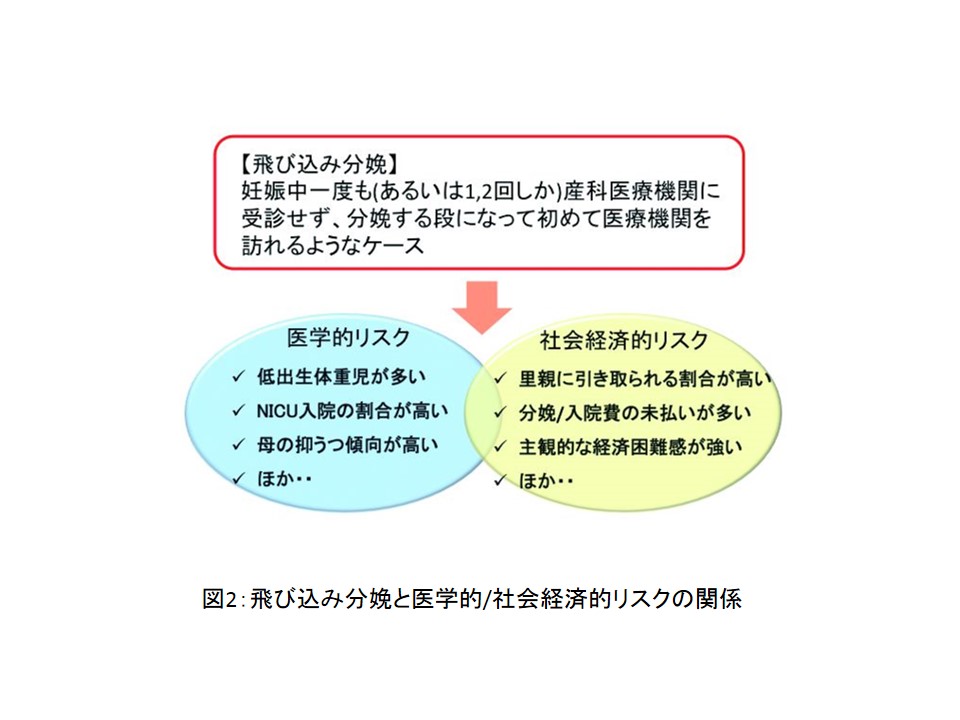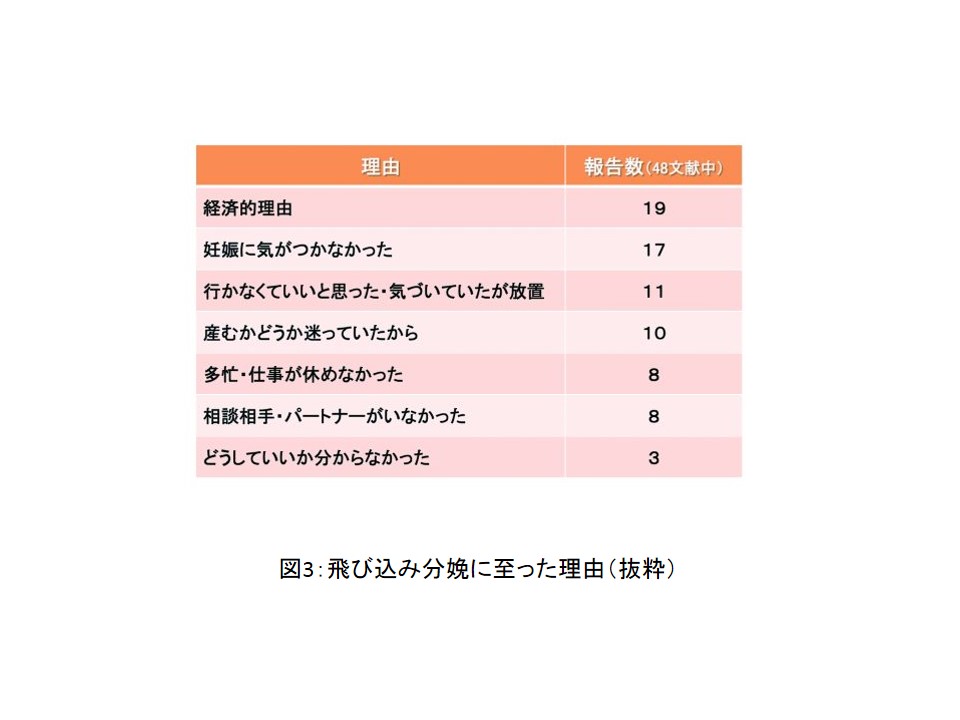キーワード: 女性の健康、周産期看護、セクシャリティ、母子関係、母子保健
http://www.md.tsukuba.ac.jp/nursing-sci/maternity/link.html
 次世代をになう若い人々が安心して妊娠・出産できる環境であることは、どんな社会においても非常に重要な要素です。まして、現代日本のような少子高齢化社会であれば、その重要性に疑いの余地はないでしょう。リサーチユニット「女性の健康と母性看護学」は、生まれてくる子どもが誰からも愛され健やかに成長できる環境をつくることを目指し、女性の健康 課題やその看護方法の解明に取り組んでいます。
次世代をになう若い人々が安心して妊娠・出産できる環境であることは、どんな社会においても非常に重要な要素です。まして、現代日本のような少子高齢化社会であれば、その重要性に疑いの余地はないでしょう。リサーチユニット「女性の健康と母性看護学」は、生まれてくる子どもが誰からも愛され健やかに成長できる環境をつくることを目指し、女性の健康 課題やその看護方法の解明に取り組んでいます。
妊娠・出産に関わるリスクの存在
妊娠・出産は、人生のなかでも最も幸せな出来事のひとつと言って良いでしょう(図1)。しかし同時に、妊娠・出産には女性の健康状態や社会経済的地位(SES, socioeconomic status:学歴、職業、所得、就業状況、身分などをさす言葉)と関係するリスクも存在するのです。
皆さんは「飛び込み分娩」という言葉を耳にされたことはあるでしょうか。妊娠中の女性には、全員が概ね14回の妊婦健診を受けられるような公的補助があります。しかし、ごく稀に、ほとんど健診を受けずに出産される方がおられます。このようなケースを飛び込み分娩と呼び、母子の健康はもちろん、出産後の親子関係などにも関係していると考えられています(図2)。


飛び込み分娩に至る背景には何があるのか
私たちはこの飛び込み分娩について、その背後にある女性のSESや、出産後の母子の健康および胎児感情への影響について研究を行っています。具体的には、 飛び込み分娩を経験された女性へのインタビューや、過去の研究論文の見直しなどの研究手法を用いました。その結果、飛び込み分娩になった(妊婦健診に行か なかった、または行くのがおくれた)背景には、経済的理由に加え、妊娠に気づかなかったなどの妊婦への教育に関わる問題も存在することが分かってきたので す(図3)。
妊婦はもちろん妊娠前の若い人達への教育・情報提供の充実を行っていくうえで、養護教諭を含め、妊娠初期から退院後まで妊婦と触れ合う機会が多い看護職の存在は重要です。私たちは、看護職が妊娠以前から出産後の支援にもかかわることで、飛び込み分娩の予防教育や、出産後の長期的支援が可能になるのではないかと考えています。

社会への貢献・実績
● 安心して妊娠・出産できる環境作りのための母子保健制度改革
● 妊婦への新しい情報提供・教育のあり方の提言
● 思春期男女に対する性教育講演・ピアグループ活動の支援
(取材:平成25年10月17日)
Toward the realization of a safe society where women can become pregnant and give birth without anxiety
Key words: women’s health, perinatal nursing, sexuality, mother-child relationship, maternal and child health
Creating an environment where the next generation of young adult women can become pregnant and give birth without anxiety is a very important factor in any society, especially in contemporary Japanese  society, facing an aging population and declining birthrate. A research unit “Women’s health and maternity nursing” has been striving to tackle women’s health issues and identify nursing methods, with an aim to create an environment where newborns are loved by all and can grow up healthily.
society, facing an aging population and declining birthrate. A research unit “Women’s health and maternity nursing” has been striving to tackle women’s health issues and identify nursing methods, with an aim to create an environment where newborns are loved by all and can grow up healthily.
Risks of pregnancy and childbirth
Pregnancy and childbirth are some of the most special moments in our lives (Figure 1). However, at the same time, pregnancy and childbirth have risks associated with health and the socioeconomic status (SES: A term that describes an individual’s socioeconomic status based on education, occupation, income, and work).
Have you ever heard of “deliveries by women receiving no prenatal care”? All pregnant women are advised to receive regular government-subsidized check-ups approximately 14 times throughout the course of pregnancy. However, occasionally, there are some women who give birth with little or no prenatal care. Such “deliveries by women receiving no prenatal care” are considered to influence not only mother-child health, but also mother-child relationships postnatally (Figure 2).

Figure 2 : Relationships between deliveries by women receiving no prenatal care and health/socioeconomic risks
Backgrounds of “deliveries by women receiving no prenatal care”
We conducted research on deliveries by women receiving no prenatal care, their SES, and the influence on mother-child health and feelings toward their unborn babies. Specifically, we conducted interviews involving mothers who experienced deliveries without receiving prenatal care, and modified our past studies. As the results, in addition to financial problems, problems related to sex education for women, such as not knowing about getting pregnant, were identified as the reasons for delivering without receiving prenatal care (late or no check-ups) (Figure 3).
To provide education and information on pregnancy for not only pregnant women, but also young non-pregnant women, the presence of nurses, who have many opportunities to encounter pregnant women from the early stages of pregnancy to postnatal discharge, is important. We consider that the involvement of nurses in support throughout pregnancy and the postpartum period contributes to preventing women from receiving no prenatal care and realizing long-term postpartum support.
Social contributions and achievements
● Reform of the maternal and child health system to create an environment where women can become pregnant and give birth without anxiety
● A proposal for education and a new way of providing information for pregnant women
● Sex education for adolescents and support for peer group activities


